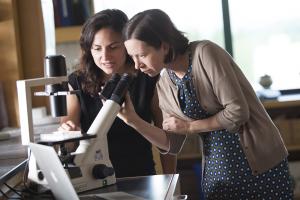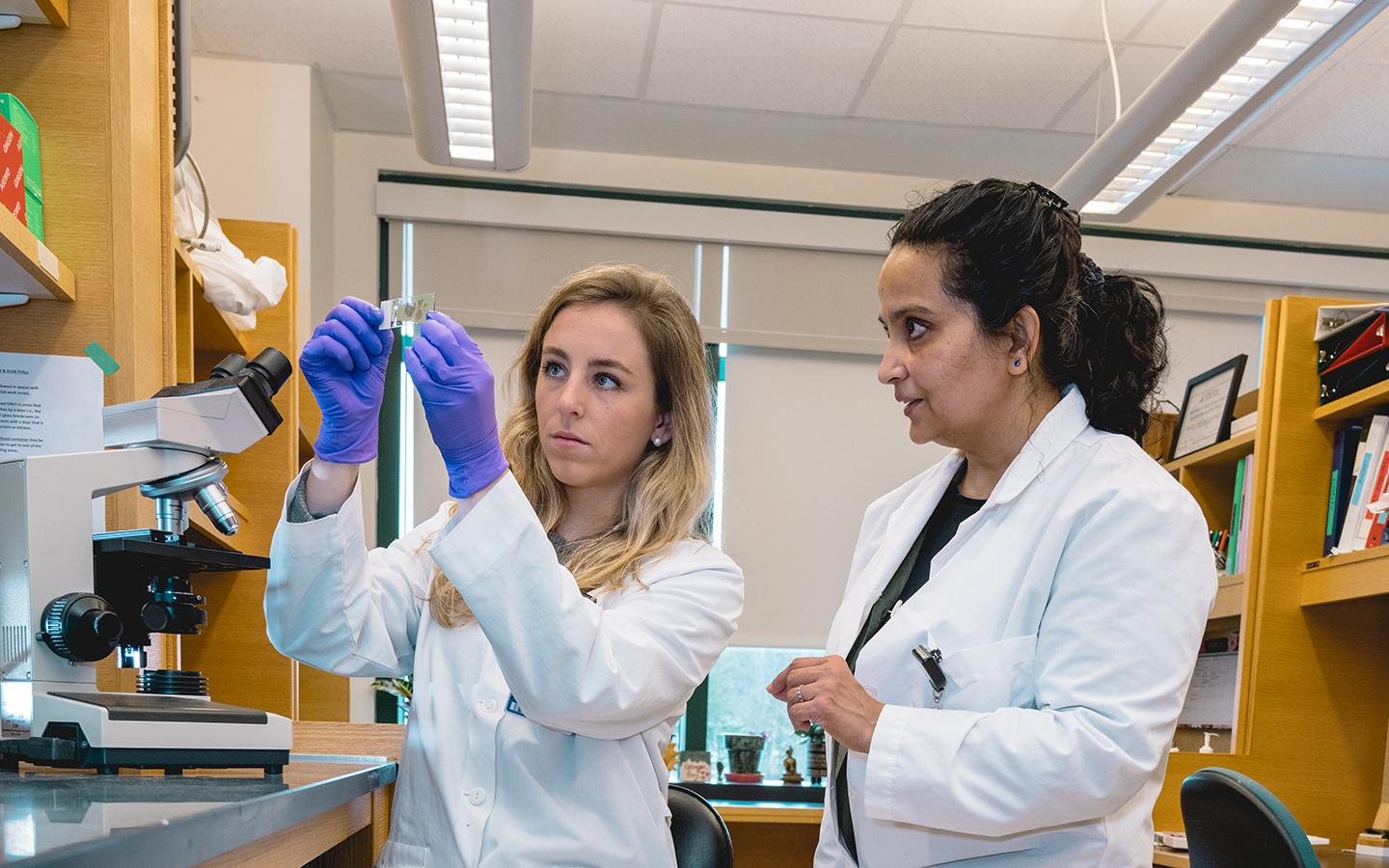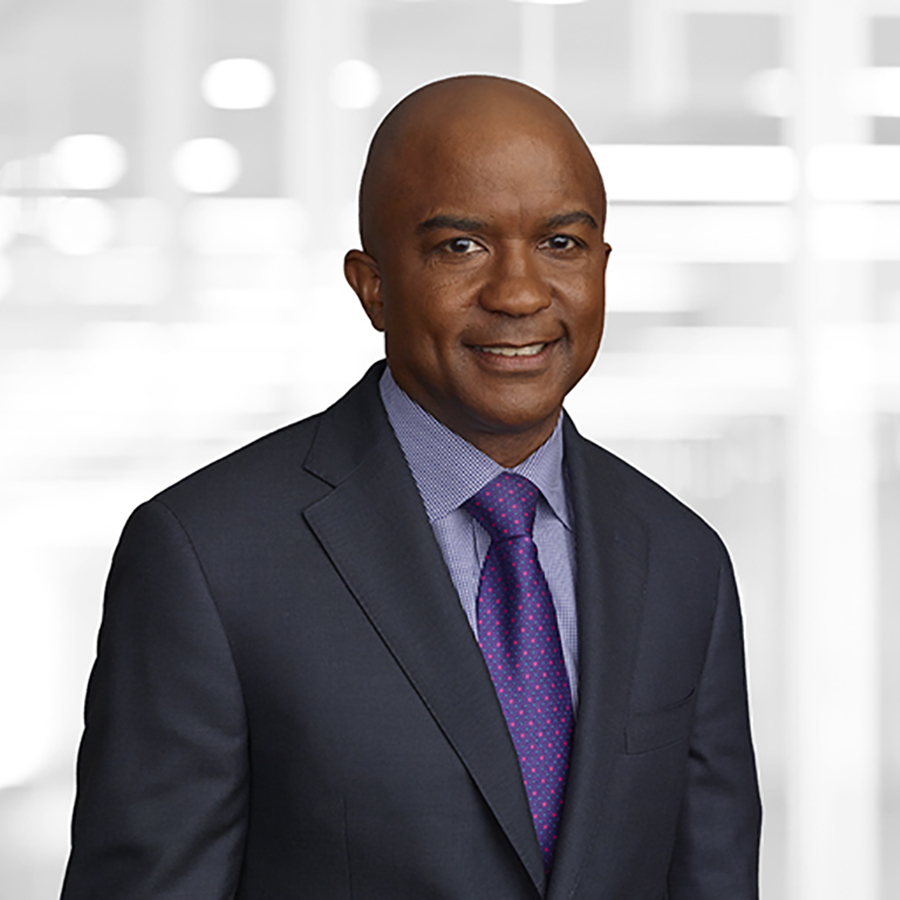
Dartmouth’s Cancer Center
Transcending boundaries to shape the future of cancer care and prevention
Donors commit $1.4 million to launch the Dartmouth Innovations Accelerator for Cancer

Five alumni and health care investors have committed a total of $1.4 million in gifts to launch the Dartmouth Innovations Accelerator for Cancer.
This new initiative will give Dartmouth cancer researchers the support and entrepreneurial guidance needed to bring innovations to the marketplace for the benefit of cancer patients, and provide Dartmouth students with learning opportunities in biomedical entrepreneurship.
“The best, most efficient way for us to bring Dartmouth’s biomedical discoveries to cancer patients around the world is through entrepreneurship,” says Steven Leach, the Preston T. and Virginia R. Kelsey Professor at the Geisel School of Medicine and director of Norris Cotton Cancer Center, operated jointly by Geisel and Dartmouth-Hitchcock.
The partners behind this project—Geisel, the cancer center, and the Magnuson Center for Entrepreneurship—are seeking to raise $15 million for the Dartmouth Innovations Accelerator for Cancer through The Call to Lead campaign.
With this first round of support in place, the accelerator will launch this fall and sponsor its first projects during the current academic year. Biomedical research teams will pitch their ideas to a panel of local and national biotech leaders and venture capital investors—a mix of alumni and non-alumni—who will select the most commercially promising projects that address unmet needs.
“Much like the best companies my firm invests in, Geisel and the cancer center are deeply committed organizations with a really clear sense of shared purpose, and that's exciting,” says Todd Sisitsky ’93, chair of the Geisel Board of Advisors and managing partner at the investment firm TPG Global, where he has overseen health care investments of more than $12 billion.
Sisitsky is one of five alumni leaders who have stepped forward to launch this effort with their personal philanthropy. He is joined by fellow alumni and health care investors Hoyoung Huh ’91, founder of Healthcare & Humanity Foundation; Ross Jaffe ’80, co-founder and managing director of Versant Ventures; Stephen Bloch ’84, CEO of EvolveImmune Therapeutics and general partner of Canaan Partners; and Steven Rodgers ’93, head of health care investing for Morgan Stanley Capital Partners.
This team of investors is building a network of alumni leaders and donors who will support the accelerator through their professional engagement and personal philanthropy.
“To be able to create an opportunity where people with good ideas can come and get funding, support, and advice will continue to drive Dartmouth to be a leader in cancer care and research,” says Rodgers, head of health care investing for Morgan Stanley Capital Partners, who also supported the initiative. “Through this venture Dartmouth will continue to attract some of the best researchers and faculty who can benefit from it.”
The initiative builds on three decades of entrepreneurial successes and innovations at the Norris Cotton Cancer Center, which aims to transform cancer care on a global scale through next-generation immunotherapy, precision prevention, entrepreneurship, and educating future leaders.

“To be able to create an opportunity where people with good ideas can come and get funding, support, and advice will continue to drive Dartmouth to be a leader in cancer care and research."
Dartmouth’s cancer center ranks sixth nationally in entrepreneurship among the 51 National Cancer Institute-designated comprehensive cancer centers. The oldest and most successful cancer center spinoff is Medarex, which developed the first approved immunotherapies for cancer and was purchased by Bristol Myers Squibb. Royalties from the sale of Medarex benefit Dartmouth researchers today in the form of grants supporting early-phase, highly innovative research at Geisel.
“We are launching the accelerator through philanthropy. But our goal is to work toward a model where the accelerator will eventually support itself as proceeds from these innovations flow back to the institution,” says Jamie Coughlin, director of the Magnuson Center. “This is a well-established evergreen approach to investing, and now is the time to build this at Dartmouth.”